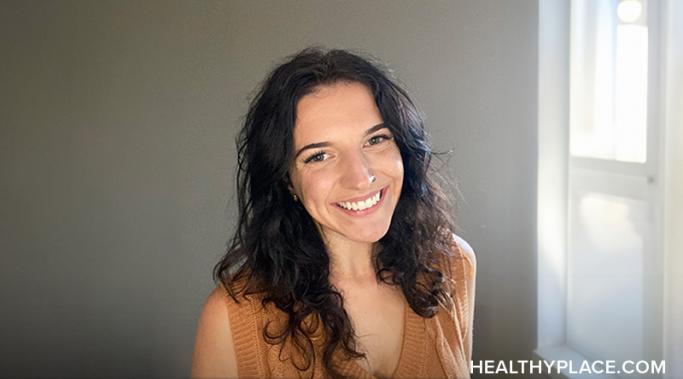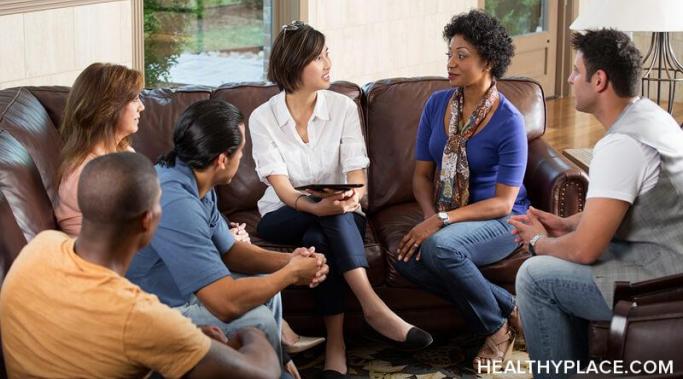Blogs
Goodbyes suck. I suck at giving goodbyes. There are times I’m more likely to fade away than give a proper goodbye. But, in this case, I’m here to give a proper goodbye to HealthyPlace. As much as I don’t want to say goodbye, it feels like it’s time for me to move along.
As Japan's unique culture continues to gain interest worldwide, many previously unknown aspects of Japanese life are now much more widely understood. At one end is its distinctive pop culture. On the other are its traditional philosophical concepts related to mindfulness, simplicity, and the inherent power of nature. These aspects of Japan's unique culture have undoubtedly played a pivotal role in helping me create a blissful life.
I formerly used earplugs to drown out the noise and chatter in restaurants and some other public places, but now I’ve switched to noise-canceling headphones to deal with the anxiety those noises cause. Let me tell you about them and about why I need noise-canceling headphones for anxiety in the first place.
Throughout the years, I've developed coping strategies that are helpful for my anxiety. But, I also realize that to effectively cope with the anxiety that might be triggered out of nowhere, I need to give myself a chance to heal from painful memories of the past.
I'm Michaela Jarvis, and I’m excited to join the "Recovering from Mental Illness" blog to share the stories and experiences I’ve faced on my road to mental illness recovery. This road has been bumpy, often embarrassing, guilt-ridden, and isolating, but it has led me to where I am today. Along the way, I've rebuilt my life and have garnered insights and experiences that I believe can help others on similar journeys. My ultimate goal is to share these experiences, honest and raw, to make things less lonely and more bearable for anyone who might be feeling what I've felt and been where I've been.
I’m Kevin Anyango, and I’m very excited to share my gambling addiction recovery journey on the "Recovering from Mental Illness" blog to help myself, and others stay on the straight and narrow. Five years ago, I hit rock bottom; I had no money, no place to stay, no job, and every little I made went to gambling. Alone, starving, and sleeping on the streets, I took a good hard look at myself and decided it was time for a change.
Over time, I learned that Alcoholics Anonymous (AA) wasn't for me. To say my initial response to the concept of AA meetings was poor would be an understatement. I recall being in my first rehab, joining the chorus of naysayers with some choice words. However, this would all change when I could no longer keep telling myself I was in control of my drinking.
Like everyone else, I sometimes feel bored with my life. Boredom is a derivative of expectations that haven't been met; when I'm bored, it's because I feel like I'm not living the life I ought to be. This can be true in the micro-sense of being bored at work or in the macro-sense of being bored with a career trajectory itself, to name just two examples. If not your job, you might be bored with your family, partner, living environment, or any number of other things, up to and including yourself. But did you know that boredom and attention are linked?
In a previous article, I wrote about feeling anxious about starting my first session with a personal trainer. But now that I am two months into the program, I have to admit there are many clear benefits to working with a certified professional who knows much more about fitness and nutrition than I do. It has been a challenge, but under her instruction, I am slowly learning how to create a balanced relationship with exercise. I can even see myself building stamina, resilience, strength, and athleticism. Here are some of the lessons from personal training that also help me out in ED recovery.
I'm Karen Mae Vister, and I'm overjoyed to be the new author of "More than Borderline." Living with borderline personality disorder (BPD) hasn't been a walk in the park for me. Out of the BPD criteria, I've experienced my fair share of chronic emptiness, emotional roller coasters, and desperate efforts to avoid feeling abandoned. But this blog isn't about dwelling on the struggles; it's about shining a light on the path to recovery and breaking down the stigma surrounding BPD.










I'm sorry things are so hard. I know what that's like.
I can't tell you what to do, but I can tell you this: it took me a long time to find the best treatment for me -- and things still require tweaking. Moreover, it's unlikely that any one thing will work on its own for you. You likely need a combination of approaches like therapy and medication together. And remember, doing what you have always done will give you what you've always gotten. You can't change your brain on your own.
One thing I can say is, don't give up. Things can get better.
-- Natasha Tracy
I'm so sorry about how hard it is. I know what it's like to appear "fine" but be anything but. I also know how hard it is to ask for help.
I think when you're asking for support, the best thing to do is to think about what you want to say ahead of time and think, specifically, about how to explain what you're going through. You can then think about how to express yourself while not overly concerning the other person. (Keep in mind some concern is normal and unavoidable.)
For example, maybe you want to talk about being depressed. You might say something like, "I feel like everything is grey. Food tastes like sawdust. I feel like I'm never going to get better. I don't know what to do."
All those things are normal and okay. You might want to further express something like this, though, "I know my brain is lying to me about never getting better, but it feels very real."
The second part is important because it helps the other person put what you're saying into perspective.
Other people don't know what it's like to be in your brain, so try to explain it to them and explain how concerned they actually should be.
Finally, if you can't do the above, I understand. It's awful to have to take care of the other person while asking for help for yourself. That doesn't mean you still should ask, though. If they're concerned, then they're concerned, and that's okay.
-- Natasha Tracy
Thank you so much for reaching out to share this part of your story. From one twin to another, I am deeply sorry for the loss of your sister, and I can certainly understand the frustration, discomfort, and insecurities of feeling like your bodies were under constant scrutiny and comparison. I appreciate your vulnerability and willingness to share your insights and experience.
I now live a very depressed life, which is very isolating. I understand the feeling of not wanting to die, but also getting very worn out from living.
One day I want to seek help for myself, and the rest of the time I think it would be best to just soldier on alone.
I hate being such a disappointment to people, whether it's friends, family, or even the rare relationships I encounter.
I've tried medication in the past, I've tried counselling and support groups, I now think that nothing will help, especially not even my own ability to help myself.
If only you could just take whatever is wrong out of my head, as I really hate to think things are just going to get worse until life decides it's time for me to pass.
I appreciate your transparency and step by step ideas to survive as a single person.. Even though I suffer from Bipolar 1, I find that either end of the polar spectrum creates chaos in my life as well as friends and family. These are the more full blown manic times, where literally everyone who cares about me are dealing with hospitalization emergencies. While well , they assume everything is fine. Now is the deep depression where even leaving my house or getting out of bed are really hard. I am overwhelmed and my house is a mess. I do not communicate my depression to anyone but my therapist because I don’t want to make them worry. I’m worried myself because of the unpredictability of this disease.. I am too sad to cry and I’m practically having a panic attack thinking about going to work tomorrow. At any moment I could snap at one of my unlikable colleagues. Even though I need a paycheck, I’m also fully capable of quitting if anyone crosses me. The biggest frustration is that no one seems to understand. I appear normal on the outsides but inside, it can really suck. I’m going to listen to your podcasts and hopefully, you will cover more specifics on how to elicit support without causing panic…and who wants to be appointed this unpleasant job.